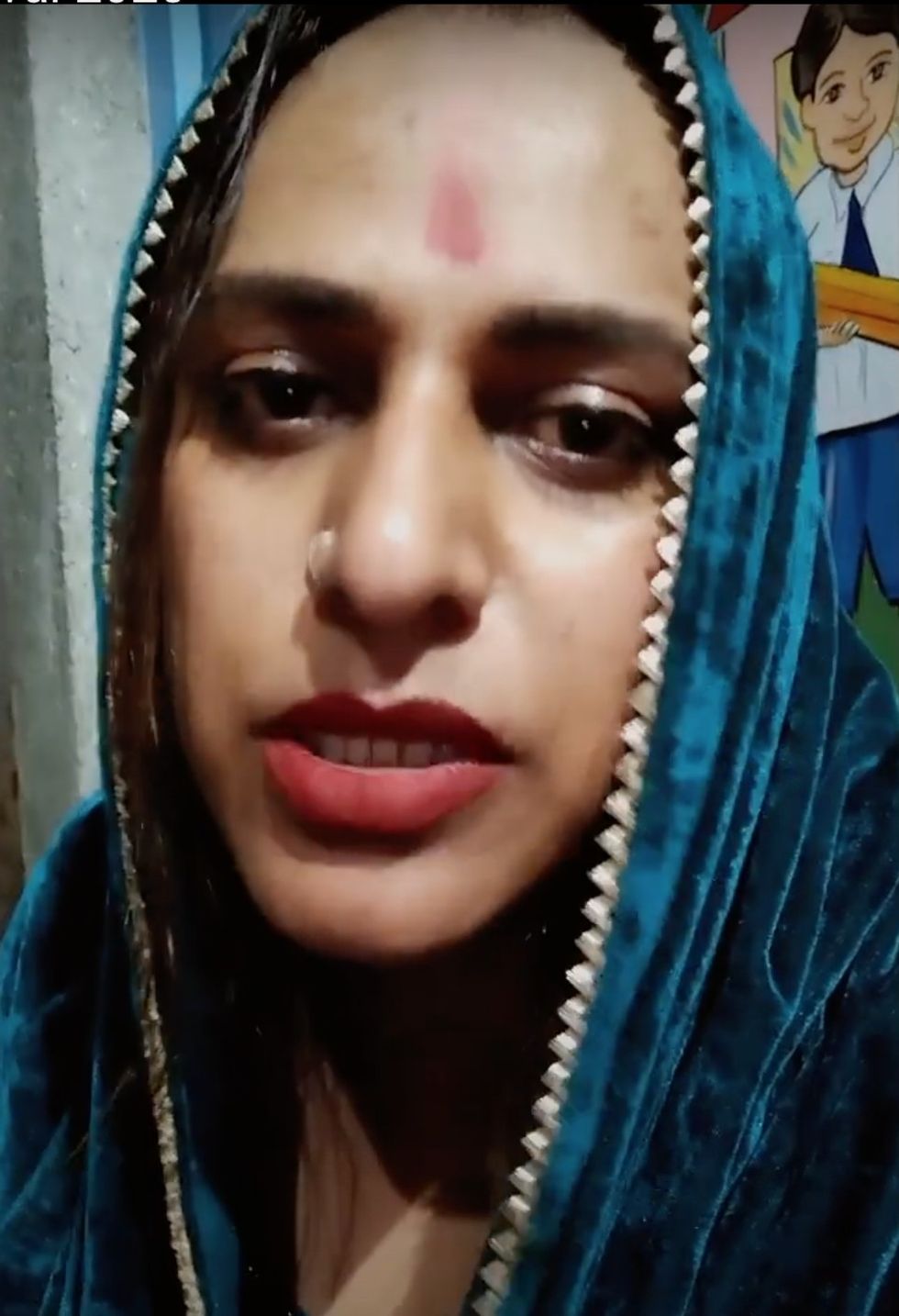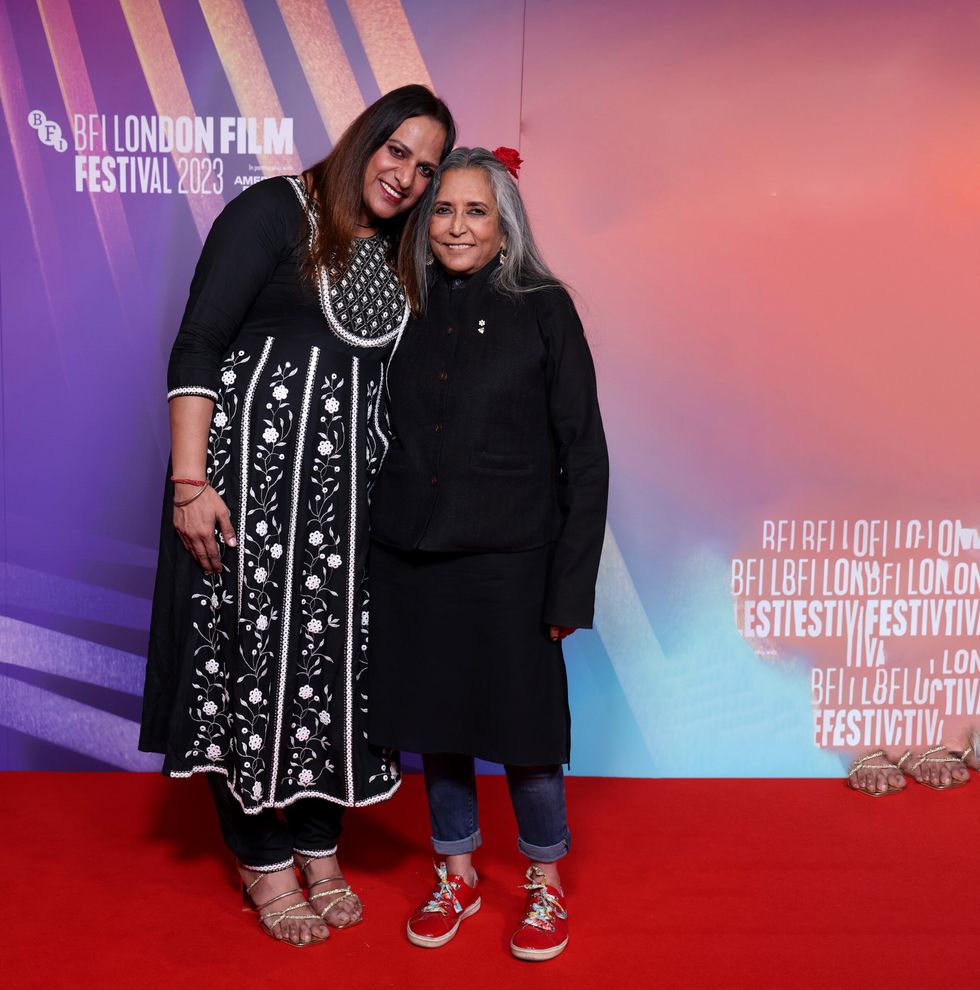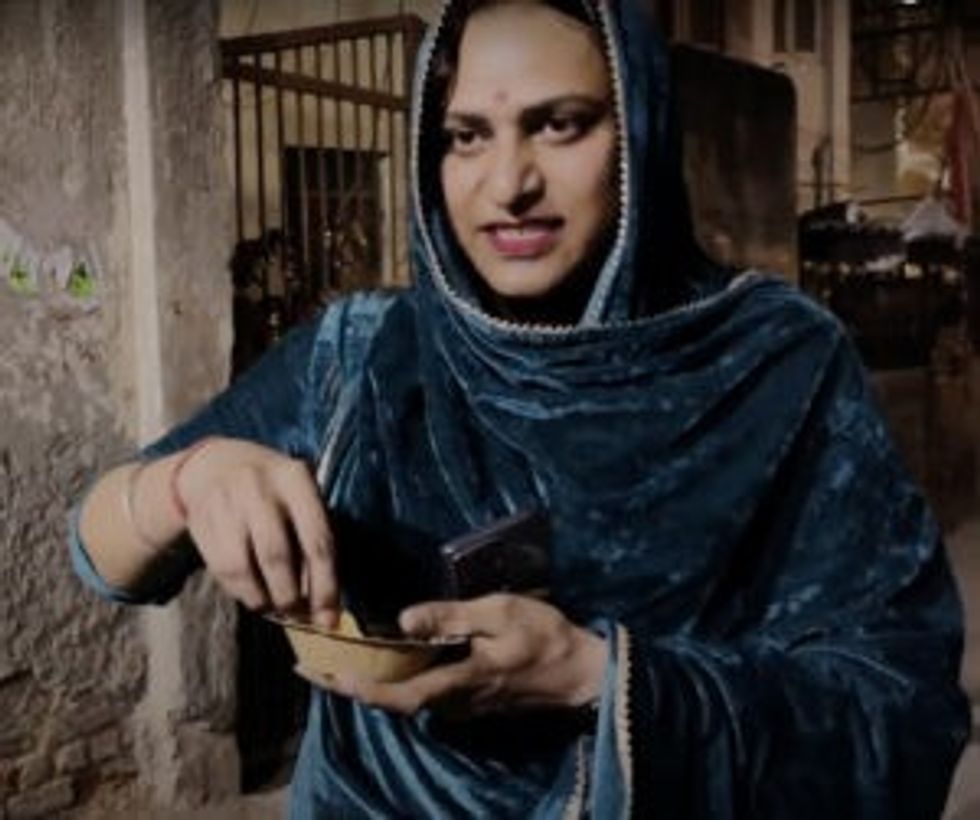PERHAPS the most unique creative partnership of the year has seen Canadian Oscar-nominated director Deepa Mehta teaming up with India-based transgender woman Sirat Taneja.
They have collaborated on I Am Sirat, which has delighted audiences at major film festivals like London and Toronto. The acclaimed documentary film follows Delhi-based Sirat as she navigates a complex double life of living as a professional woman Sirat and being a dutiful son Aman at home for a widowed mother unwilling to accept her.
With the transgender debate being red-hot around the world, this is a timely film that has won hearts and reopened important discussions, including within the south Asian community, where it remains a taboo. The dynamic Delhi-set duel identity documentary shows less can be more as it was remarkably filmed on a phone camera.
Eastern Eye caught up with Sirat to discuss her personal journey and a simple film with a big heart that has become a hot topic of conversation. She spoke softly in Punjabi and peppered each answer with a smile.
What led you towards making the film I Am Sirat?

The reason for making this film was the hope that my mother and family would accept me. So, I made this film for acceptance, especially from my mother. She knows about my sexuality but hasn’t been accepting it. Through this film, she can see the journey I am on and what I am going through.
So hopefully, she understands that and accepts me.
How did you first meet acclaimed filmmaker Deepa Mehta?
I have known her for four-five years. We bonded instantly after I had shared my experiences with her.
That working relationship started with (Netflix series) Leila.
What has it been like working with her?
It has been a beautiful experience working with Deepa ma’am. That normal working relationship developed into a strong bond over the years. The relationship deepened and this film was born out of that. It was like working with family and I have felt that bond with her always.
What was the experience of making this movie after Deepa agreed to your idea of making it?
It was amazing and felt great. I didn’t know what to expect, but I am thankful for the experience. I didn’t realise that it would grow into something bigger like this, including being at major festivals like London, which has been very good for the film.
Did you have any worries about being part of such a revealing film?
I wasn’t scared at all because I took this step after a lot of thought. I weighed up all the positives and negatives carefully, before commencing work on this project, so I wasn’t fearful at all. Deepa also put my mind at rest.
Did you learn anything new while making this film?
(Laughs) The first thing I learned was how to properly hold and use my phone camera. I knew myself very well, so didn’t learn anything new in that respect. I was fully aware of my situation, and what I was doing. I wasn’t acting in the film, so didn’t need to learn that. It was all natural.
What else did this film teach you?
I have also learned on this journey that there are opportunities for transgender people like this film and they shouldn’t hide in the shadows – all of them should proudly come forward. I always understood what I wanted to say, and this film gave me a voice. I hope it gives others a voice too and makes them feel seen.
How much does the positive response mean to you?
(Smiles) I have never received so much love in my entire life.
The love I have got in Canada and London at the festivals has been especially overwhelming. A lot of people have taken the time to speak with me and share their own experiences, which means so much. Many said, ‘I wish you were my daughter’, which meant so much to me. I never imagined receiving so much love.
I have appreciated that a lot.
What is the key message of I Am Sirat?
The message of this film is acceptance above all. I just want to communicate that we too are human beings and should be accepted. We are not some separate animals. We have the same feelings, emotions, a heart and two hands as every human being. We should all be properly accepted in society and treated like everyone else. To families who have transgender children, I want to say, please properly understand and love your children.
How does it feel that this film is being selected for major festivals?
To be officially selected in major festivals like Toronto and London has been wonderful. I have liked the whole experience a lot. I am so very thankful to the organisers of the festivals for having faith in this film and for giving me an opportunity to tell my story.
Who are you hoping to connect with this film?
We are hoping that as many people as possible watch this film. Not just me, but also Deepa ma’am. This film is aimed at everyone. I hope this film enables people to understand me and those in my position. We hope this film promotes a positive debate. I hope they all pray that my mother finally, truly accepts me, and pray for all trans people in my position.

How important is this film?
This film is massively important to me because it allowed me to tell my story. I will always be thankful for that. It is also important for the wider society. Deepa ma’am and I may not be able to change someone’s thought with this film, but hope that this film enables people to understand the life of a transgender person. We have so many challenges, from family members to society as a whole and this film highlights that.
Has your family seen the film yet?
They haven’t seen it yet but know it has been made.
They think it’s a film about Aman, not Sirat.
I want them to see it and understand what I want, which is acceptance, and how much I am struggling in my life.
What has been the driving force during your journey with this film?
I think the inspiration has come from within.
Like I had said, I wasn’t getting acceptance from my family. I received a lot of emotional and physical abuse, including being beaten and thrown out of the house. I had fights with my mother and family. I could have carried on living my life like that but thought it was time to do something about it and fight back in my own way.
Did you think about the outcome of this film journey?
I thought if I was successful great but if not, I haven’t lost anything and it’s ok.
Thanks to Deepa ma’am, we are seeing success on international platforms.
I’m really pleased that my story is out there, and hope this film inspires everybody to fight for their rights.







 Jamie Lloyd’s Evita with Rachel Zegler set for Broadway after London triumphInstagram/
Jamie Lloyd’s Evita with Rachel Zegler set for Broadway after London triumphInstagram/








 A compelling premise, layered and unpredictable charactersAMG
A compelling premise, layered and unpredictable charactersAMG Anyone who enjoys a gripping story with a diverse cast and unexpected twistsHarperFiction
Anyone who enjoys a gripping story with a diverse cast and unexpected twistsHarperFiction
 The Story Teller by Ley Roberts
The Story Teller by Ley Roberts Summer Exhibition coordinator Farshid Moussavi, with Royal Academy director of exhibitions Andrea Tarsia in the background
Summer Exhibition coordinator Farshid Moussavi, with Royal Academy director of exhibitions Andrea Tarsia in the background An installation by Ryan Gander
An installation by Ryan Gander A sectional model of DY Patil University Centre of Excellence, Mumbai, by Spencer de Grey
A sectional model of DY Patil University Centre of Excellence, Mumbai, by Spencer de Grey Rituals and Identity and Theatre of Resistance by Arinjoy Sen
Rituals and Identity and Theatre of Resistance by Arinjoy Sen
 An explosive new play that fuses biting satire, history and heartfelt storytellingPleasance
An explosive new play that fuses biting satire, history and heartfelt storytellingPleasance
 Lunchbox is a powerful one-woman show that tackles themes of identity, race, bullying and belongingInstagram/ lubnakerr
Lunchbox is a powerful one-woman show that tackles themes of identity, race, bullying and belongingInstagram/ lubnakerr She says, ''do not assume you know what is going on in people’s lives behind closed doors''Instagram/ lubnakerr
She says, ''do not assume you know what is going on in people’s lives behind closed doors''Instagram/ lubnakerr